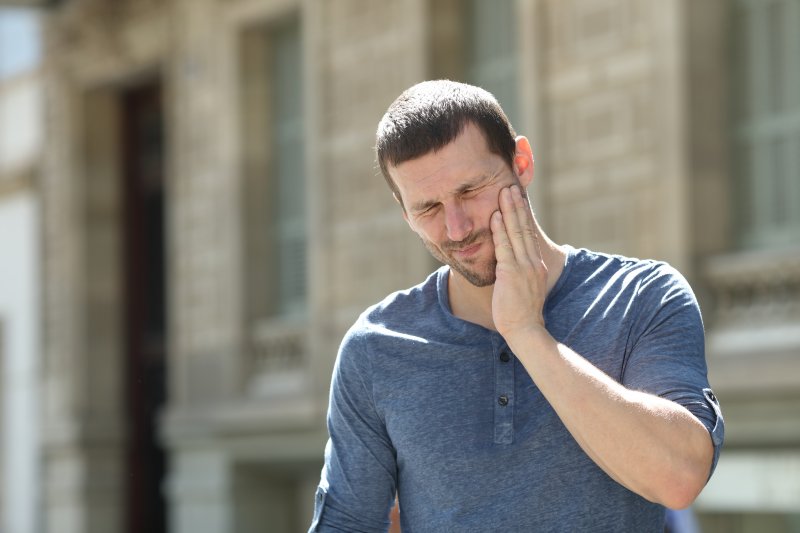Why Visit Your Dentist for TMJ Pain?
July 21, 2022

Chronic pain in your jaw is often a result of a temporomandibular joint (TMJ) disorder. If you find yourself suffering from such discomfort, your immediate instinct might be to call your regular physician. But what you may not realize is that in many cases, your dentist is the best choice for diagnosing and treating problems with your TMJ. The following post goes into more detail about what a TMJ disorder is and why you should see your dentist for TMJ pain.
What is a TMJ Disorder?
The TMJ is the joint that connects your jaw to your skull; it is located on either side of your head right in front of each ear. If there’s a problem with your TMJ, it can lead to symptoms like jaw pain, headaches, lockjaw, and earaches. Such problems are referred to as TMJ disorders.
It’s not always clear what caused your TMJ disorder. Common possibilities include jaw injuries, repeated clenching of the teeth due to stress, arthritis, and poor tooth alignment. Whatever the case, you’ll want to have the problem addressed quickly before it grows any worse.
How Can a Dentist Help with TMJ Disorder?
Dentists are concerned with more than just your teeth. They look at your entire mouth as part of a larger system, and this system includes the TMJ. As such, they’re in a good position to help diagnose your TMJ disorder and determine what kind of care is needed to stop your pain.
Dentists also offer several treatments that can help address potential causes of TMJ disorder. For example, if poorly aligned teeth are putting too much pressure on the jaw joints, a dentist might perform what’s known as occlusal adjustment. A small amount of enamel is removed from select teeth so that the upper and lower arches meet each other evenly when they meet. This allows your mouth to properly distribute the forces of biting and chewing, taking pressure off the TMJ and giving it a chance to rest.
Another solution dentists often recommend for TMJ disorder is wearing an oral appliance known as an occlusal splint. The device moves your jaw slightly forward to help your TMJ find a more comfortable resting position. It also protects the mouth from the grinding and clenching that often accompanies a TMJ disorder; this helps prevent excessive wear on your teeth that could lead to other problems.
Think You Have TMJ? Call Your Dentist Now!
As soon as you have reason to think there’s a problem with your jaw joint, call your dentist. Once they’ve confirmed that you have a TMJ disorder, they can help you explore your options for TMJ therapy so that you can go back to enjoying a pain-free lifestyle.
About the Author
Dr. Mark Gerome earned his doctorate of dentistry at The Ohio State University College of Dentistry, graduating in 1995. He has been helping Loveland patients enjoy brighter, healthier smiles for over 25 years, and he was recently voted Top Dentist of 2022 in recognition of his abilities. If you’re suffering from a TMJ disorder, he can help identify the root of the problem and offer solutions such as occlusal adjustment, occlusal splints, and more. To schedule a consultation with Dr. Gerome at Gerome & Patrice Family Dentistry, visit his website or call (513) 677-1349.

